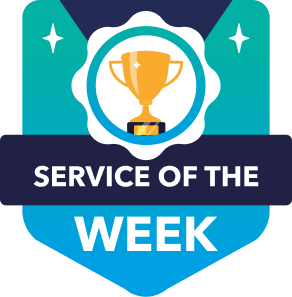Online course creation is a very lucrative business model for teachers and experts.
You get to make money by teaching your passion to students—now, who doesn't want that?
Unfortunately, launching an actual profitable online course is not easy.
There are many factors involved in breaking the bank with your online course, from brainstorming for course ideas to promoting it to the public.
Without a system that enables you to develop and market your online course correctly, nobody will hear about and buy it.
In this post, learn from people who have produced some of the most successful online courses across different fields. You'll also know the platforms that most successful course creators use and best practices for creating your modules.
By applying these teachings, you can maximize the results as an online course creator course and get more of your target audience to buy it.
Let's begin!
#1 - Jose Portilla

Jose Portilla is a professional Data Science, Python Programming, and Machine Learning instructor.
He has a knack for analyzing data and communicating the information to clients using beautiful visuals. Jose used his skills to launch and provide multiple training courses for employees of companies like McKinsey, General Electric, The New York Times, and more.
One of the courses he offers is the Python and Django Full Stack Web Developer Bootcamp. It teaches students to create websites using programming languages like HTML, Bootstrap, jQuery, and others.
With 32 hours worth of in-demand videos spliced into 27 sections, the course covers the whys and hows of creating sites from scratch.
What makes this course great is how Jose was able to break down complicated concepts and ideas in an easy-to-understand manner. Even if you're a beginner as a full-stack web developer, the course brings you to speed with the best and latest languages used by today's top companies to create sites.
174,897 students signed up for the course, with a 4.5 rating (out of 5.0) from 42,925 reviewers.
This course is just one of the 49 premium courses he published on Udemy, an online learning and teaching marketing.
It is the perfect place for newbie course creators to launch their online courses. They can focus on putting out the best course about their topic and upload it on the platform. Udemy will then take care of promoting your course and delivering it to your students from their servers.
Not to mention, its large user base ensures that you can get at least a handful of people to enroll in your course. From here, you can scale your course to attract even more students.
#2 - Ali Abdaal

Ali Abdaal is an FY2 Junior Doctor and a Cambridge medicine graduate. He's also a YouTuber who has published almost 450 videos and amassed 2.96 million channel subscribers as of writing.
His goal is to provide strategies and tools to help people become more productive and lead happier lives.
In his course "Productivity Masterclass - Principles and Tools to Boost Your Productivity," Dr. Ali breaks down productivity into its core foundations within two hours, divided into 15 video lessons.
In the end, the course should help people understand what fuels others to get more things done faster and how they can do it as well.
Dr. Ali hosted his course along with 239 of his projects on Skillshare.
Similar to Udemy, it's an online course marketplace that covers various topics ranging from animation to leadership and management. Course creators can also get in touch with thousands of people ready to access your projects and offer their feedback on each.
Unlike Udemy, students can access all courses with an annual subscription. That means you will be paid for the number of minutes that students watch your classes. You can earn from $0.05 to $0.1 for every minute watched by members.
So, make your courses as compelling as possible so students will watch all your videos, thus maximizing your earning potential from the platform.
Dr. Ali's course is one of the most popular productivity courses in Skillshare with 81,812 students and has exceeded the expectations of 69% of the course takers. It is suited for all levels based on 3,007 reviews.
#3 - Coastal Drone

If you want to learn how to use drones for basic and standard operations, Coastal Drone is a no-brainer.
Founded by a group of long-time commercial pilots, the course teaches people the regulations they must observe when using drones in public. This enables operators to use their unmanned aerial vehicles (UAVs) without breaking any laws in Canada and keeping everyone around them safe.
The greatness of Coastal Drones boils down to how specific its course packages are. The Basic package is ideal for people operating UAVs in uncontrolled airspace flying 30m away from bystanders and never over them.
The Advanced package is the opposite—it's meant for people using UAVs in controlled spaces within 30m and over bystanders.
All these courses will help course takers ace their written Transport Canada exams to use UAVs as part of their business.
Coastal Drones also offers a free course for people who want to become drone pilots. Then there's a premium course that teaches people how to take better professional photos using their UAVs.
The website and its courses are hosted using Thinkific. Unlike the previous two, this self-hosted platform gives you complete control over how you want to feature and offer your courses to people.
You can set up live lessons to keep members' engagement levels high, create exams and give them certificates after completing them all, and set up communities so members can reach out to one another.
#4 - Mike Greenfield

Bread baking is probably not what a lot of people think about. But Mike Greenfield is unlike those people.
A YouTuber with 3.33 million subscribers for his Pro Home Cooks channel, his love for bread baking (particularly sourdough bread) is evident in his course Sourdough University.
His course teaches people how to bake artisanal bread without expensive equipment and years of baking experience while in the comfort of their homes.
The course has 45+ videos that will guide you through the sourdough bread baking process. Aside from the actual baking, Mike teaches different recipes that go with sourdough bread and how you can fit bread-baking into your busy schedule.
Similar to Coastal Drones, Sourdough University is such a niche course that finding a wide audience for it would almost be impossible.
However, you can't discount passion and expertise, both qualities which Mike exhibited in his course. This reason is why the course is prominently featured as a course example in Teachable, another online course platform.
Similar to Thinkific, Teachable allows you to create unlimited courses using your domain and provide a customized school experience for your students. You can also integrate other tools with it to help you promote your course properly across different channels.
#5 - Your Guitar Sage

Unlike the previous courses mentioned, guitar playing is a very saturated niche. You can find great guitar lessons for free on YouTube and learn how to play your favorite songs in a few days, if not hours.
So what does Erich Andreas do to get his course Your Guitar Sage off the ground?
First, he established himself as an expert guitar player by amassing over 750,000+ subscribers on YouTube from the free video lessons he shares on the platform.
For those looking to advance their guitar skills, people can join Eric's Unstoppable Guitar System paid subscription from the site.
It includes 185 exclusive HD video lessons not available on YouTube, a members-only community, and an hour-long orientation into the program. A higher tier subscription provides access to Q&A webcasts, jam tracks, etc.
Eric uses Kajabi to power his online course. It lets you create and sell as many online courses using blueprints to guide you from developing your course to the launch phase.
More than just an online course platform, Kajabi lets you sell products from the same site, accept payments from different gateways, build an email list, send a drip campaign to subscribers, etc.
#6 - Tim Stevenson

Health and fitness remain a priority among people. Some want to stay fit and live a healthy lifestyle, while others want to push their bodies to the limit and do amazing things with them.
Calisthenics gives you the best of both worlds, and that's what Tim Stevenson at the School of Calisthenics is trying to promote.
Its online training program includes expert video coaching, monitored training programs, and self-assessments to better understand your progress.
The course caters to all levels of calisthenics practitioners. So whether you're brand new to this workout type or looking to do specific calisthenics movements, there's a program that's right for you.
More importantly, the course has a free 7-day trial that grants you access to all its resources for those on the fence about the course. After trying and not liking it, they can choose not to subscribe after the trial period concludes.
The School of Calisthenics runs on Learnworlds. It lets you create a school where you can market and sell your online courses. Members can then view the lessons from their desktop or mobile devices using its official app.
Over time, you can monitor your school's results and unearth insights that you can take action on to improve it.
Kajabi featured the School of Calisthenics in a case study/success story, which you can view here.
#7 - Joost de Valk

Yoast SEO is one of the most popular search engine optimization (SEO) plugins on WordPress. It helps users optimize their site by observing the best practices to better rank site pages for your target keywords.
Due to its popularity, it only makes sense for Yoast SEO CEO Yoost de Vaulk to create a course that aims to help newbies learn the ways of SEO as the plugin is intended for. To do this, Yoast launched its Free and Premium online SEO training courses.
The free course contains the fundamentals of SEO necessary to make websites rank on Google.
The Premium plan offers more advanced and specific SEO training to keep users up to speed with the latest trends and developments in this space.
More importantly, the Premium training comes with Yoast SEO Premium plugin that users can use to implement the advanced teachings.
Yoast SEO Academy runs on LearnDash. It's also a plugin that turns your WordPress site into a full-fledged school with different courses.
Upload your course modules and resources for members to consume. After which, run an exam or quiz testing their knowledge.
The beauty of LearnDash is you get to tap into WordPress's massive plugin library. You can supercharge your WordPress school with plugins that will help you generate more traffic, attract more sign-ups, and more.
#8 - John D. Saunders

John D. Saunders is a website designer by trade and founder of web design studio 5Four Digital.
Through his experiences, he wants to educate other web designers to develop their processes and systems that allow them to generate a client base and create digital assets they can sell through their agencies.
His Web Design Accelerator course contains nine modules focused on growing your agency rapidly. It discusses setting up your web design agency, acquiring paying clients, and building websites using Webflow.
John offers separate courses for job templates and standard operating procedures (SOPs). These are included in the Web Design Accelerator course, But agency owners with established practices could benefit from these templates to improve their results.
John initially launched his course on Udemy, where we got 2,000 students for it. But after moving his course to Podio, he was able to multiply his earnings to six figures in the process. Read here on how he was able to do this.
Using Podia allows you to profit more from the online courses and digital downloads you will sell from it. You can also foster better engagement amongst yourselves via its community and email marketing features.
Additional Tips Before Launching Your Online Course
Validate Your Course Idea First
The key to getting the most out of your online course is to find out if there’s a market for it. Without one, you’ll spend months creating a course with zero students because people aren’t interested in your topic.
A good way to validate your idea is by first building a YouTube channel like Ali Abdaal and Mike Greenfield.
By creating high-quality videos for their target audience, both were able to gain the trust of millions of followers.
Using insights from their followers, they built a paid course that caters to their audience and plays to their knowledge.
On the downside, building a following on any social platform is time-consuming. One way to validate your course idea much quicker is to set up a simple landing page explaining what your course is about.
Then include a sign-up form that will inform subscribers if the course is already live.
If there aren’t enough subscribers to warrant the creation of the course even after promoting the page, then brainstorm for more ideas and follow the same process above.
Choose Your Course Platform
Not all course platforms are the same.
Udemy and Skillshare offer ease and convenience since you don't have to worry about paying for hosting your course. However, on the downside, you don't get to maximize the profits that you'll get from members.
We've documented Skillshare’s pricing model with course creators above. Udemy has a different and arguably more complicated pricing agreement. Regarding which to choose between the two, you're guaranteed to get only a fraction of the sales.
Platforms like Thinkific and Teachable solve this problem by letting you keep all your earnings if you opt for their paid plans. And that's another thing altogether—you’ll have to subscribe to its paid plans if you want to maximize your earnings from the platform to the fullest.
LearnDash is another solution if you want to pay for a learning management system (LMS) plugin at a much lower price compared to the ones above. But you may have to learn how to use WordPress first if you decide on doing this route.
Note: If you already have a Legiit account, you can host your online courses on us for free.
Ultimately, there’s no right or wrong answer here. The goal is to create a course that will help solve people’s problems or share your passion while making money.
Whichever platform you feel helps you achieve this goal the best should be your choice for where you should create your course.
Plan Your Content Before Creating It
After finding out that there’s a demand for your course, outline the modules you will include in it.
Since people will be paying for the course, you must cover the topic as comprehensively as possible. Therefore, provide as much value as possible in your video modules and leave no stone unturned.
Gather the necessary theories, examples, and case studies to help support your case and explain why they should trust you.
Don’t forget to use the best equipment to record the audio and video modules. Securing the microphone, video camera, and software you’ll be using allows you to focus on course creation instead of the technical difficulties.
Put a Fair Price on Your Content
You want to charge your course as fair as possible.
Overcharging it might drive your audience away from buying it.
Charging it lower than the market price won’t generate the necessary amount to justify the effort you put into creating the course.
There are different ways to approach pricing your course.
The first is creating a mini-course at a meager price. Then, depending on your audience's reaction, you can slowly create new course modules. Then relaunch your course that includes your new modules at a much higher price.
The original course members can get access to new modules moving forward to give thanks for trusting them with you in the first place.
Another way to approach this is by creating tiers to your course. Like Your Guitar Sage, you can make a free tier for new members to try out your free content.
Then offer paid tiers for your exclusive content. This gives people choices about which modules they want to learn from your course.
Finally, you can offer a free trial of your course to get people to taste what they’re missing out on by not subscribing to it.
The downside here is that people might take advantage of the free trial period to learn everything they need from your course.
However, it could help convince people to sign up for the course long-term, especially if you have a vibrant and active community.
Promote It!
Promoting your course will determine how much you can earn from it.
Validating your course idea with help from your target audience makes marketing your course much easier.
You can update them regarding your course since they’re either your social media followers or landing page subscribers. This way, they know when it’s out and if they can sign up for it.
You can do paid ads on social media to tap into the demographics most likely to purchase your course. The results of the paid ads depend on the ad budget you will allot for this campaign.
Finally, you need to set up a marketing funnel that allows you to target the right people according to their buying stages.
For example, if they’re not aware that your course exists, you must create informational content informing people of the benefits of learning from you and the topic in general.
For those who are still undecided on whether to take your course or not, invite them to join your webinars and schedule a 1-on1 call with you.
This enables you to get in touch with your target audiences to sell them your course properly.
Conclusion
Learning from the most successful online course creators should give you an idea of how to come up with your own.
Based on the course creators featured above, there’s no one-size-fits-all advice for you to follow. But their efforts and approaches should at least give you additional ideas on how to tackle course creation and selling online courses your way.













 Download
Download